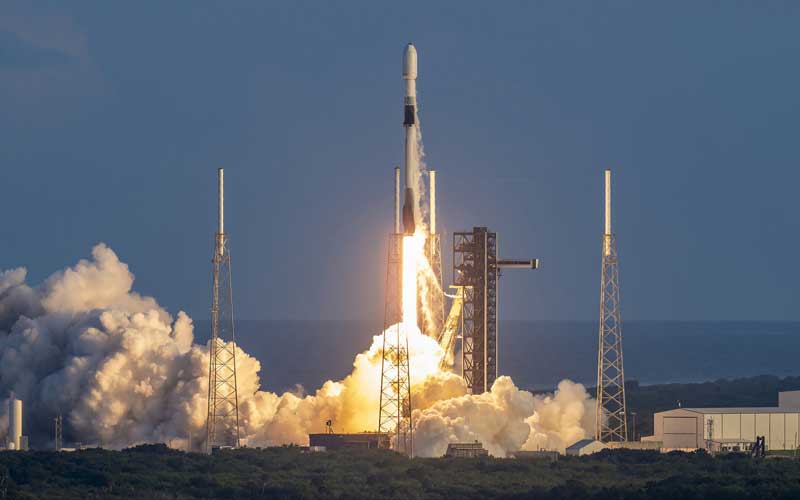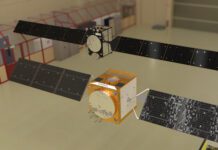
SpaceX launched the second of two flights contracted by the European Space Agency to deliver four satellites to orbit for the European Union’s Galileo satellite navigation system.
The four Galileo satellites launched aboard SpaceX Falcon 9 missions had initially been assigned to Soyuz flights launched from Europe’s Guiana Space Centre. However, following Russia’s invasion of Ukraine, all ESA-managed Soyuz flights from the facility were scrapped. The responsibility to launch the satellites was then shifted to Arianespace-managed flights. With the retirement of Ariane 5 and development delays with Europe’s next-gen heavy-lift rocket which pushed back its introduction, ESA was forced to look elsewhere.
In late 2023, ESA, on behalf of the European Commission, signed an agreement with SpaceX that would see the US launch provider complete two Falcon 9 flights carrying two pairs of Galileo satellites. The first of the two flights was successfully launched in April.
A Falcon 9 rocket carrying the final two Galileo satellites to be launched with SpaceX lifted off from Cape Canaveral Space Force Station at 22:50 UTC on 17 September. Approximately three and a half hours later, the two satellites were successfully deployed into a medium Earth orbit.
“With the deployment of these two satellites, Galileo completes its constellation as designed, reaching the required operational satellites plus one spare per orbital plane,” explained ESA Director of Navigation Javier Benedicto.
While the 32 satellites launched complete the Galileo constellation, an additional six satellites will be added to increase the system’s performance and reliability. These satellites are expected to be launched in pairs aboard Ariane 6 rockets between 2025 and 2026.


